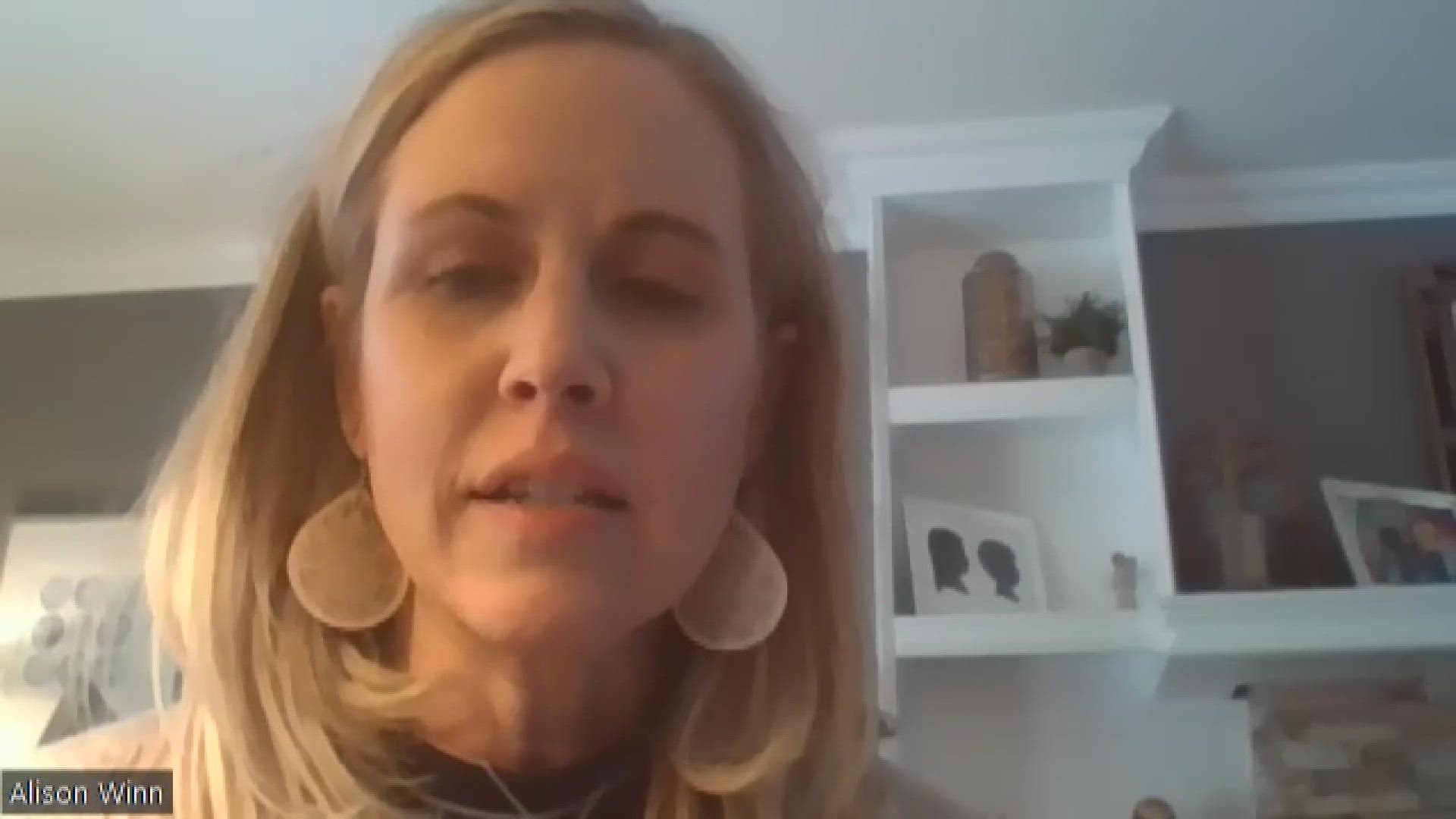COLORADO, USA — Wednesday was a tough day to be a teacher in Colorado.
Law enforcement agencies responded to threats at schools across the state. But those threats appear to be hoaxes, known as “swatting,” according to investigators.
The FBI said they "have no information at this time to indicate a specific and credible threat."
“It’s constant. It's a constant fear that our kids are living in, and education is living in,” said Alison Winn, a teacher at Arapahoe High School in Littleton.
On Wednesday, her school was not targeted with a threat. They did not go on a lockdown. But another school in the district did, and like many other teachers, Winn was learning about threats at schools across the state on social media.
“I teach every day in fear,” Winn said. “I absolutely love my job. But every morning I walk into my school, and I look down the hallway where our shooting happened and I kind of say to myself, ‘Is it going to happen again today?’”
Winn’s fear comes from personal experience. She was a teacher at Arapahoe High School in 2013, when one of the students at the school shot and killed a fellow student, Claire Davis.
Changes around safety have been made at her school, and most other schools around the country, in the years since that shooting and the numerous other school shootings that preceded or followed. But Winn said it's still hard for educators and students to truly feel safe.
“I know, in Littleton Public Schools, I can’t say enough about [it] since the shooting in Arapahoe, all the support we’ve gotten. Like – we have two [school resource officers], we have security guards at each door. So I feel like our district has the resources,” she said.
“But I still don’t feel safe. And that’s hard. As much as I think, like, we try to institute some things in the school, it’s still just not enough. There’s a much bigger problem out there that needs to be addressed.”
Winn teaches government and history classes. She said she and her students will discuss the issue of gun violence in class, and whether they can come up with solutions.
“I think one of the things I find very disheartening as a teacher, a government teacher, my kids have this feeling that nothing’s going to be done to help them,” she said. “I think that’s my greatest fear – is watching young people not believe that this can be solved. And kids are supposed to be optimistic.”
Even when her school isn't threatened, or even when the threat turns out to be a hoax – which was the case on Wednesday – the fear, and the impact on people inside the building, is still very real.
The Colorado Education Association (CEA), the statewide teacher’s union, just published its annual report looking at some of the challenges in education. Among the data points shared, CEA said 67% of educators are “very” or “somewhat worried” about a mass shooting at their school.
In an emailed statement, CEA President Amie Baca-Oehlert offered this Wednesday:
“Our educators go above and beyond for their students, every day, to provide them with the safest, most welcoming environment possible. But the reality is that in classrooms across the country, there is a persistent threat of violence.
When threats like today’s occur – regardless of whether or not they are real – it causes very real stress and trauma for students and educators alike. We appreciate schools and law enforcement acting quickly in the swatting incidences today, and want to emphasize that even “fake” threats of violence have tangible impacts on many people throughout our communities.”
“I don't know what that is about our society where people get joy from creating fear,” Winn said. “Especially on our young population.”
“We normally want to look to the teachers, and the schools, often as the solution. But we can’t do it by ourselves,” she continued.
“We’re already understaffed and underpaid. And now I’m supposed to be a mental health expert. A lockdown expert. A crisis expert. As well as an expert of the content that I love, and we can’t do it alone. We need parents, politicians., community members – to like – solve a problem.”
SUGGESTED VIDEOS: Latest from 9NEWS

